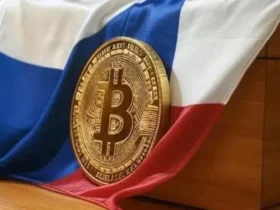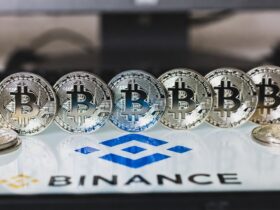A group of Cubans created their own bank, not of brick and bureaucracy, but of bitcoin (BTC). Now they focus on their project being replicated throughout Latin America, and reaching Africa.
To understand what happens in Cuba you have to live it. «Blackouts can last up to 20 hours in a day. Without electricity, there are no ATMs, and furthermore, connectivity with the rest of the world, through the Internet, is fragile,” as Forte, co-founder of the Cuba Bitcoin community, told CriptoNoticias.
Furthermore, in Havana, where The monthly salary of a teacher or an engineer barely touches 20 dollarsthat darkness is not just physical; It is economic, it is existential, adds Forte.
In Cuba, many residents are clinging to bitcoin as a lifeline. This, to confront monetary control and censorship.
Bitcoin is Cuban-style survival
The seed of BTC germinated in the arid soil of the economic crisis which is the most severe since Cuba became independent from Spain in 1902, as points it out the professor of Political Science, Javier Corrales.
The Cuban peso became a mirage of stability. In the last ten years the island has suffered a shortage of basic consumer products, high inflation, decreased investments, and worsening harvests. They also suffer because electricity generation capacity fell by 25% between 2018 and 2022, while “poverty and inequality are higher than ever,” Corrales lists.
“And in less than two years, the purchasing power of the Cuban peso (CUP) with respect to the dollar has decreased more than 10 times,” Forte explained in conversation with CriptoNoticias.
The data confirms this, as the Cuban peso went from approximately 410 CUP per dollar in early September to a peak of 490 CUP per dollar in late October. This represents a depreciation of around 20%, driven by persistent inflation, shortage of foreign currency and lack of effective government measures.
With salaries stagnant between 8 and 20 dollars a month, remittances—which inject billions of dollars a year—became the island’s oxygen.
But then came freely convertible currency (MLC), a digital currency seen by critics as a CBDC (central bank digital currency) that tracks every transaction.

And with the state’s money in mind Forte remembers the takeoff of Cuba Bitcoin. “It all came about because we started running our own Lightning Network node so we could receive donations without someone blocking us.”
That Cuban community that emerged in 2022, shortly after, already had some of its members, educating themselves with My First Bitcoin. They then gave shape to their Easy Bitcoin program, a course that democratizes knowledge.
All this to boost the currency created by Satoshi Nakamoto in a country where the home internet—when it exists—travels at 4 megabits per second, and is often interrupted.
Building sovereignty with Cashu and La Chispa
Forte, who programs in the darkness of his Havana apartment, is a weaver of networks. And under his leadership, Cuba Bitcoin built the “Cashu for Community” ecosystem. It is a “sovereign bank” that includes a Lightning network node that improves block synchronization through Neutrino. This is a lightweight Bitcoin client, ideal for mobile devices because it does not require downloading the entire transaction history and does not use many resources.
The tool also has a community wallet server. And what Forte calls “a gem,” which is the Cashu mint—a protocol that allows transactions offline through blind signatures, preserving financial privacy.
On this, “La Chispa”, an intuitive interface for the Lightning Network, adaptable to each community, transforms complex payments with bitcoin in something as simple as lighting a lighter in the dark.

«Although the wheel has already been invented, we had to reinvent it. Because although there are many tools that are great, these are censored in Cuba,” Forte confessed.
Their solution arose after understanding that foreign developers, fearing retaliation, closed their doors to them. “They run the risk of being arrested if they allow the use of their bitcoin projects in Cuba.”
And so, Cuba Bitcoin integrated into its project an LNBits wallet, BTC Pay Server for online stores and solutions for blackouts that paralyze traditional banks. Now, our idea is to help each community have control over the tools they use and responsibility over the funds.
Forte, founder of Cuba Bitcoin.
In Cuba, where only the telecommunications company ETECSA is the telecommunications provider and Starlink or mesh networks are illegal, bitcoin is not just money; It is a tool that facilitates individual autonomy and resilience in a challenging environment.
“If you use Starlink in Cuba, you can be arrested,” says Forte, who believes that bitcoin redraws sovereignties, allowing the oppressed to claim financial territories.
He says Cuba Bitcoin focuses on BTC circular economies and citadels where communities custody their funds. This is differentiating itself from corporations that do not offer complete transparency about who controls user funds.
Others, such as the Federation of Bitcoiner Communities of Latin America, they celebrate the Cuba Bitcoin proposal. This is one of the 39 communities that joined this organization in 2024.
While advocating for “custody tools like Cashu, which do not cede control to third parties,” thanks to their privacy, Forte envisions expansion.
A learning to share with 10 communities
“We are choosing 10 bitcoin communities to replicate our experience,” he announces, with interested parties from Kenya—where Cashu resolves chronic power outages—to Latin America. Cuba Bitcoin already offers advice via Cashu4Community, with the only requirement of filling out a form to qualify for the offer.
And when Cashu’s mint whispers invisible transactions, Forte and his community continue to dream of a world in which money is not a chain that binds. On the contrary, they prefer to have a tool that gives them wings to gain freedom.
They are making sure that Your story does not end on an island. They want it to become a universal call in the era of algorithms. They believe that the true revolution is to claim their own code.
Their answer is to empower, with bitcoin, community leaders with transparent accountability, a precarious balance in today’s world.






Leave a Reply